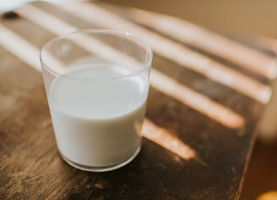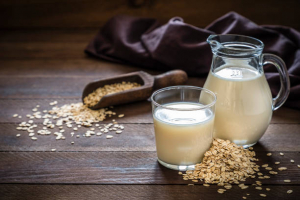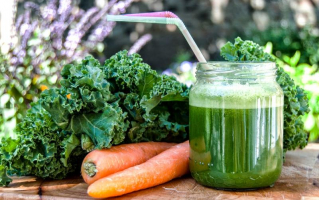Top 5 Health Benefits of Milk Thistle
The milk thistle plant, also known as Silybum marianum, is the source of this herbal treatment. Milk thistle silymarin is known to have antioxidant, antiviral, ... read more...and anti-inflammatory properties. In fact, it has long been used to heal liver and gallbladder issues, increase breast milk production, prevent and treat cancer, and even protect the liver from snake bites, alcohol, and other environmental toxins. Here are the science-based benefits of milk thistle.
-
Milk thistle is frequently advocated for its liver-protective properties. People with liver damage from illnesses such as alcoholic liver disease, non-alcoholic fatty liver disease, hepatitis, and even liver cancer frequently utilize it as a supplemental therapy. It is also used to protect the liver from toxins such as amatoxin, which is produced by the death cap mushroom and can be fatal if consumed.
Milk thistle supplementation has been proven to improve liver function in persons with liver disorders, implying that it may help minimize liver inflammation and damage. Although more research is needed to determine its mechanism of action, milk thistle is thought to prevent liver damage caused by free radicals, which are created when your liver metabolizes hazardous chemicals.
According to one study, it may marginally increase the life expectancy of persons with cirrhosis of the liver caused by alcoholic liver disease. However, study results have been inconsistent, and not all have found milk thistle extract to be useful for liver illness. As a result, further research is needed to determine the appropriate dose and duration of treatment for certain liver disorders. And, while milk thistle extract is often used as a supplemental therapy for persons with liver problems, there is presently no proof that it can prevent these conditions, particularly if you live an unhealthy lifestyle.

Protects Your Liver 
Protects Your Liver -
For over two thousand years, milk thistle has been used as a traditional medicine for neurological diseases such as Alzheimer's and Parkinson's disease. Because of its anti-inflammatory and antioxidant characteristics, it may be neuroprotective and may help avoid the deterioration in brain function that occurs as we age. Silymarin has been demonstrated in animal and test-tube tests to reduce oxidative damage to brain cells, which may aid in the prevention of mental decline. Milk thistle has also been shown in trials to lower the number of amyloid plaques in the brains of animals with Alzheimer's disease. Amyloid plaques are sticky amyloid protein clumps that can form between nerve cells as you age.
They are found in high concentrations in the brains of persons suffering from Alzheimer's disease, suggesting that milk thistle could be utilized to help treat this challenging condition. However, no human trials have been conducted to investigate the effects of milk thistle in people with Alzheimer's or other neurological disorders such as dementia or Parkinson's. Furthermore, it is unknown if milk thistle is well enough absorbed in humans to allow adequate levels to cross the blood-brain barrier. It's also unclear what doses might be required to have a favorable effect.
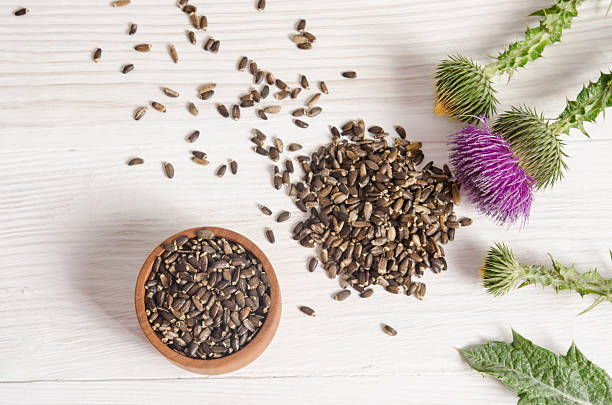
Help Prevent Age-Related Decline in Brain Function 
Help Prevent Age-Related Decline in Brain Function -
Osteoporosis is a condition characterized by gradual bone loss. It typically develops slowly over time and results in weak and fragile bones that break readily, even after mild falls. Milk thistle has been found in animal and laboratory research to accelerate bone mineralization and perhaps protect against bone loss. As a result, experts believe milk thistle could be an effective treatment for preventing or postponing bone loss in postmenopausal women.
Milk thistle has been shown to increase breast milk production in breastfeeding moms. It is considered to work by increasing the production of the milk-producing hormone prolactin. The evidence is scant, but one randomized controlled trial found that moms who took 420 mg of silymarin for 63 days made 64% more milk than those who took a placebo. However, this is the only available clinical trial. More research is needed to confirm these findings and the safety of milk thistles for nursing moms.

Could Protect Your Bones 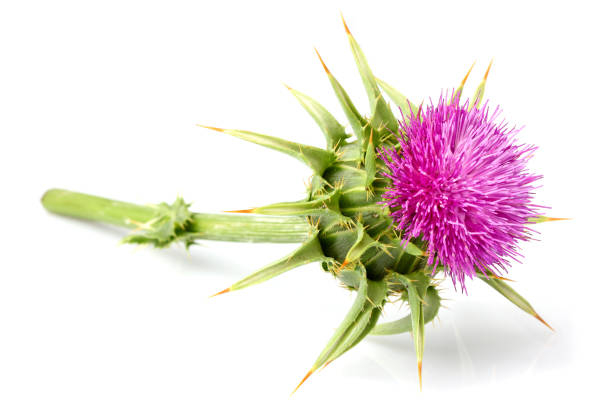
Could Protect Your Bones -
It has been proposed that silymarin's antioxidant properties may have anticancer properties, which could be beneficial to cancer patients. According to animal research, milk thistle may be effective in minimizing the negative effects of cancer treatments. It may also improve the effectiveness of chemotherapy against certain tumors and, in certain cases, even eliminate cancer cells.
However, human trials are sparse and have yet to demonstrate a major therapeutic effect in individuals. This could be due to people not being able to absorb enough to get a therapeutic benefit. More research is needed before it can be known how silymarin can help persons receiving cancer treatment.

May Improve Cancer Treatment 
May Improve Cancer Treatment -
Milk thistle may be an effective supplemental therapy for type 2 diabetes management. One of the components in milk thistle has been found to perform similarly to several diabetes medicines by improving insulin sensitivity and lowering blood sugar.
In fact, a recent study and analysis discovered that persons who took silymarin on a regular basis reported a considerable reduction in their fasting blood sugar levels and HbA1c, a blood sugar control measure. Furthermore, the antioxidant and anti-inflammatory properties of milk thistle may be beneficial in lowering the chance of developing diabetes complications such as renal disease. However, this evaluation indicated that the quality of the studies was not particularly high, thus further research is needed before making any strong conclusions.
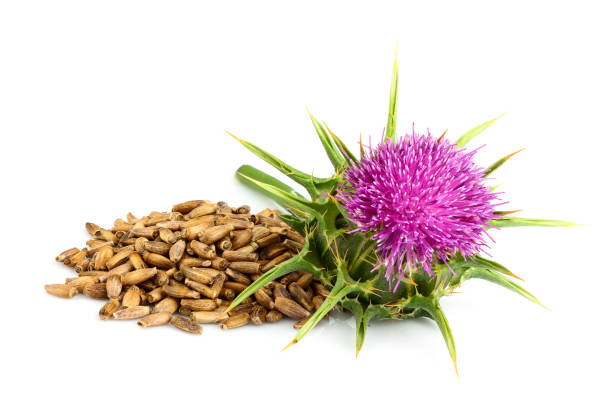
Can Lower Blood Sugar Levels 
Can Lower Blood Sugar Levels







